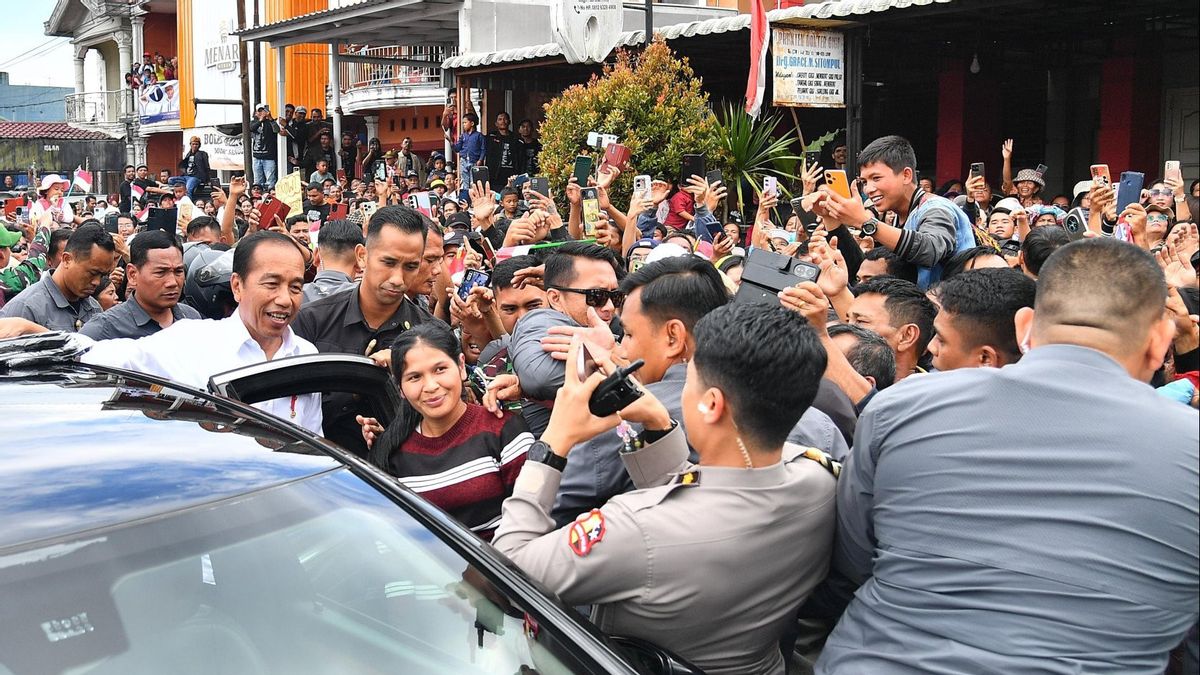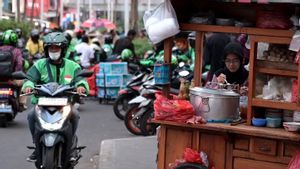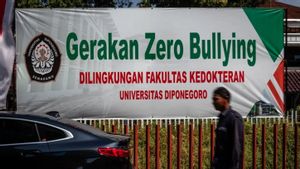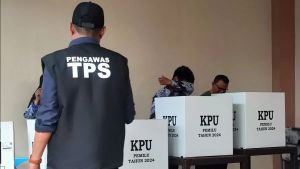JAKARTA President Joko Widodo's term of office is only a matter of days. Ahead of his retirement, the level of satisfaction with Jokowi is still high even though recently he has been hit by a number of unpleasant issues.
President Jokowi and Vice President Mar Ruf Amin will place their positions on October 20, and their duties will be followed by the elected president and vice president Prabowo Subianto and Gibran Rakabuming Raka.
However, recently Jokowi's image has decreased and tends to get negative value from the public. Starting from the suspicion that he was doing various ways to smooth out the steps of his eldest son, Gibran, to become a vice presidential candidate in the 2024 Presidential Election (Pilpres).
In addition, his two sons, Gibran and Kaesang Pangarep, are also in the spotlight for controversial problems. Kaesang and his wife, Erina Gudono, were caught in the United States using private jets and living a luxurious lifestyle. Meanwhile, Gibran's name was linked to Fufufafa's social media account which had shocked the public.
In the midst of a series of problems directed at Jokowi towards the end of his leadership, the level of public satisfaction with the seventh president of Indonesia is still satisfactory.
The Indonesian Political Indicators Survey released on October 4 recorded that the level of public satisfaction with President Jokowi was still 75 percent. This survey involved 3,450 respondents throughout Indonesia, while the number of base samples was 1200 people, with over samples in the 11 largest provinces, namely North Sumatra, Riau, South Sumatra, Lampung, Banten, Jakarta, West Java, Central Java, East Java, and South Sulawesi.
The survey period began on September 22 and ended September 29 with sampling using the multistage random sampling method. The margin error is around 2.3 percent with a confidence level of 95 percent.
Executive Director of Indonesian Political Indicators Burhanuddin in the Release of National Survey Findings: Public Evaluation of 10 Years of President Joko Widodo's Government said that actually there was a decline from the survey conducted by his team. In Zul 2024, Jokowi got 42 percent, then September 75 percent.
This decline, in the release, was partly triggered by public dissatisfaction with efforts to pass a bill that was deemed beneficial to his youngest son, Kaesang Pangarep, regarding changes to regional head election rules.
"Regarding the action of the Constitutional Court's decision, this most likely explains the downward trend in the last two months," explained Burhanuddin.
However, Burhanuddin added, the majority of Indonesians still appreciate the various social assistance provided during his ten years of leadership, as well as the government's ability to control inflation.
"That's a general pattern. When the approval is high, the average inflation is low," said Burhanuddin in a press statement related to the survey.
Executive Director of Indonesian Political Parameters Adi Prayitno said that criticism of political dynasties did not have much impact on the results of public satisfaction surveys. Adi indicated that the Indonesian people, especially the lower middle class, were still satisfied with Jokowi's performance. This satisfaction is caused by the infrastructure development and distribution of social assistance (bansos) that the president often does.
"In general, the lower middle class people are the dominating ones," said Adi.
The Political Indicators Survey shows that based on age, there is a tendency to lower the level of satisfaction in younger groups. Likewise, based on education, there is a tendency to lower the level of satisfaction in groups that are increasingly educated. According to the income group, the level of satisfaction is lower in the richer groups.
The survey asked the public about their satisfaction with President Jokowi, performance satisfaction in various fields, awareness of political developments and their attitudes about him, and trust in institutions.
Some observers cast doubt on the survey results and assess that the Indonesian people often show inconsistency when asked about the president's performance.
Firman Noor, a political observer of the National Research and Innovation Agency (BRIN), doubts the high level of satisfaction with Jokowi. According to him, the Indonesian people were anomaly when surveyed.
SEE ALSO:
Although they often complain about economic difficulties or work in their daily lives, people who are surveyed often claim to be satisfied because they are afraid of losing the opportunity to receive social assistance or feeling reluctant with figures and institutions surveyed.
"When talking about satisfaction with the president, people's stories can be different, so, this survey does not capture the real reality," said Firman.
"In my experience of conducting a survey, there is a sense of inconsistency if it is related to public satisfaction. Very common for the lower middle class people, they are afraid when surveyed."
Firman Manan, a political science teacher at Padjadjaran University, was not surprised by the findings of the Political Indicators, because most Indonesians have an economic and education level of medium to lower education.
"Confirmed in the survey findings, dissatisfaction is greater in the economic and upper middle education groups, which are minority in number," said Firman.
The majority of residents still make economic problems a priority issue, and this has been suppressed by the government through various social assistance since the end of last year to the lower middle class so that it gives positive sentiment.
"While issues such as the Kaesang jet privacy case, are an elitist issue that triggers negative sentiment from residents with an economic and upper secondary education level," said Firman again.
"For the majority of citizens, the issue of elitist does not seem to affect their level of acceptance of President Jokowi," he said.
The English, Chinese, Japanese, Arabic, and French versions are automatically generated by the AI. So there may still be inaccuracies in translating, please always see Indonesian as our main language. (system supported by DigitalSiber.id)














